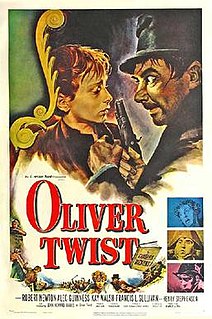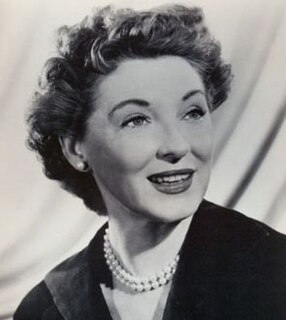
An epic poem is a lengthy narrative poem, ordinarily involving a time beyond living memory in which occurred the extraordinary doings of the extraordinary men and women who, in dealings with the gods or other superhuman forces, gave shape to the mortal universe for their descendants, the poet and his audience, to understand themselves as a people or nation.

Homer is the presumed author of the Iliad and the Odyssey, two epic poems that are the foundational works of ancient Greek literature. The Iliad is set during the Trojan War, the ten-year siege of the city of Troy by a coalition of Greek kingdoms. It focuses on a quarrel between King Agamemnon and the warrior Achilles lasting a few weeks during the last year of the war. The Odyssey focuses on the ten-year journey home of Odysseus, king of Ithaca, after the fall of Troy. Many accounts of Homer's life circulated in classical antiquity, the most widespread being that he was a blind bard from Ionia, a region of central coastal Anatolia in present-day Turkey. Modern scholars consider these accounts legendary.

The Bridge on the River Kwai is a 1957 epic war film directed by David Lean and based on the 1952 novel written by Pierre Boulle. The film uses the historical setting of the construction of the Burma Railway in 1942–1943. The cast includes Alec Guinness, William Holden, Jack Hawkins, and Sessue Hayakawa.

Lawrence of Arabia is a 1962 British epic historical drama film based on the life of T. E. Lawrence. It was directed by David Lean and produced by Sam Spiegel, through his British company Horizon Pictures, and distributed by Columbia Pictures. The film stars Peter O'Toole as T.E Lawrence with Alec Guinness playing Prince Faisal. The film also stars Jack Hawkins, Anthony Quinn, Omar Sharif, Anthony Quayle, Claude Rains, and Arthur Kennedy. The screenplay was written by Robert Bolt and Michael Wilson.

Sir David Lean was an English film director, producer, screenwriter and editor. Widely considered one of the most influential directors of all time, Lean directed the large-scale epics The Bridge on the River Kwai (1957), Lawrence of Arabia (1962), Doctor Zhivago (1965), and A Passage to India (1984). He also directed two adaptations of Charles Dickens novels, Great Expectations (1946) and Oliver Twist (1948), as well as the romantic drama Brief Encounter (1945).

Hindu mythology are narratives found in Hindu texts such as the Vedic literature, epics like Mahabharata and Ramayana, the Puranas, the regional literatures like Periya Puranam. Hindu mythology is also found in widely translated popular texts such as the Panchatantra and Hitopadesha, as well as Southeast Asian texts.

Ryan's Daughter is a 1970 British epic romantic drama film directed by David Lean. The film, set in August 1917–January 1918, tells the story of a married Irish woman who has an affair with a British officer during World War I, despite moral and political opposition from her nationalist neighbours; it stars Robert Mitchum, Sarah Miles, John Mills, Christopher Jones, Trevor Howard and Leo McKern. The film is a re-telling of the plot of Gustave Flaubert's 1857 novel Madame Bovary.

Oliver Twist is a 1948 British film and the second of David Lean's two film adaptations of Charles Dickens novels. Following the success of his 1946 version of Great Expectations, Lean re-assembled much of the same team for his adaptation of Dickens' 1838 novel, including producers Ronald Neame and Anthony Havelock-Allan, cinematographer Guy Green, designer John Bryan and editor Jack Harris. Lean's then-wife, Kay Walsh, who had collaborated on the screenplay for Great Expectations, played the role of Nancy. John Howard Davies was cast as Oliver, while Alec Guinness portrayed Fagin and Robert Newton played Bill Sykes.
A narrative work beginning in medias res opens in the midst of the plot. Often, exposition is bypassed and filled in gradually, through dialogue, flashbacks or description of past events. Hamlet begins after the death of Hamlet's father. Characters make reference to King Hamlet's death without the plot's first establishment of said fact. Since the play is about Hamlet and the revenge more so than the motivation, Shakespeare uses in medias res to bypass superfluous exposition.

Kathleen "Kay" Walsh was an English actress and dancer. Her film career prospered after she met her future husband film director David Lean, with whom she worked on prestige productions such as In Which We Serve and Great Expectations. (The 1956 'Picture Show Who's Who on the Screen' annual, gives, on page 153, her date of birth as "1914", and her height as " 5' 4" ").

Major Barbara is a 1941 British film starring Wendy Hiller and Rex Harrison. The film was produced and directed by Gabriel Pascal and edited by David Lean. It was adapted for the screen by Marjorie Deans and Anatole de Grunwald, based on the 1905 stage play Major Barbara by George Bernard Shaw. It was both a critical and financial success.

The Sound Barrier is a 1952 British aviation film directed by David Lean. It is a fictional story about attempts by aircraft designers and test pilots to break the sound barrier. It was David Lean's third and final film with his wife Ann Todd, but it was his first for Alexander Korda's London Films, following the break-up of Cineguild. The Sound Barrier stars Ralph Richardson, Ann Todd, and Nigel Patrick.

Brenda Doreen Mignon de Banzie was a British actress of stage and screen.

A Passage to India is a 1984 epic historical drama film written, directed and edited by David Lean. The screenplay is based on the 1960 play of the same name by Santha Rama Rau, which was in turn based on the 1924 novel of the same name by E.M. Forster.
Peter Taylor was an English film editor with more than 30 film credits. Perhaps his best remembered contribution is the editing of the 1957 film The Bridge on the River Kwai.

Kanban is a lean method to manage and improve work across human systems. This approach aims to manage work by balancing demands with available capacity, and by improving the handling of system-level bottlenecks.
Quinneys is a 1927 British romance film directed by Maurice Elvey and starring John Longden, Alma Taylor and Henry Vibart. It is an adaptation of the play Quinneys by Horace Annesley Vachell. David Lean worked on the film as a camera assistant. It was made by Gaumont British at their Lime Grove Studios. The screenplay concerns a British furniture salesman who buys some chairs from an American dealer, only to discover that they are fakes.
Gene D. Phillips, S.J. was an American author, educator, and Catholic priest.
Norman Savage (1930–1973) was an English film editor. He is credited as the principal editor on seven feature films, and as the sound editor on another four. He worked with the director David Lean on four films that spanned Savage's entire career. Lean has been noted as possibly "the best British film director ever", and was himself a masterful editor. Savage started his career as an assistant editor on Lean's Hobson's Choice (1954). Savage was Anne V. Coates' first assistant editor for Lean's Lawrence of Arabia (1962). He was nominated for an Academy Award for Best Film Editing for Lean's 1965 film Doctor Zhivago, and was nominated for the BAFTA Award for Best Editing for Lean's 1970 film Ryan's Daughter. Savage died of leukemia while editing the film Lady Caroline Lamb (1972). That film is the only one directed by Robert Bolt, a playwright and screenwriter who had worked on several films directed by Lean.